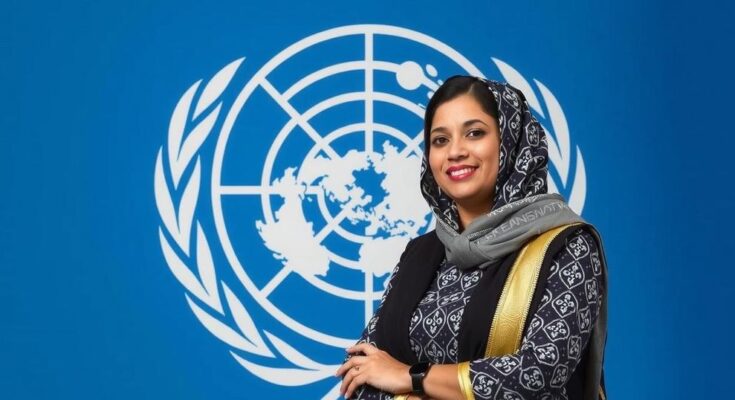Mohamed Maait has officially assumed his role as Executive Director at the IMF, representing the Arab Group and Maldives. He aims to enhance Arab economies through balanced financial policies, tackle debt issues, promote private sector investment, and utilize IMF resources strategically for sustainable development.
Mohamed Maait, the former Finance Minister of Egypt, has officially embarked on his new assignment as Executive Director and member of the Executive Board, representing the Arab Group and Maldives at the International Monetary Fund (IMF). His appointment marks a significant achievement for both his career and the representation of Arab nations within a crucial global financial institution. In expressing his gratitude, Maait acknowledged President Abdel Fattah Al-Sisi for his trust and support in securing this esteemed role. He also extended his thanks to the Egyptian government, particularly Prime Minister Mostafa Madbouly, along with other ministers, the Central Bank governor, deputies, and representatives from the Arab Group and Maldives, all of whom contributed during the nomination and election process. Furthermore, he recognized Dr. Mahmoud Mohieldin, the previous Executive Director, for his essential contributions towards enhancing the economic and developmental initiatives of Arab countries over the last four years. In a recent statement, Maait articulated his commitment to intensifying efforts aimed at bolstering Arab economies. He intends to foster economic growth through the implementation of cohesive and balanced international financial and monetary policies. Such efforts are expected to enhance financial stability, promote sound public financial management, and establish diverse and sustainable economic foundations, which will be especially beneficial for developing nations within the region. Maait underscored the critical need to tackle the escalating challenges presented by national debts and their corresponding burdens, while actively seeking viable financing solutions for development and employment generation. He highlighted the necessity of expanding the private sector’s involvement in economic activities and advocating for increased investment in a transparent and competitive business environment. The Executive Director emphasized that international investments, particularly in the private sector, must achieve new milestones to stimulate developmental activities, fulfilling essential societal needs. In the forthcoming period, Maait plans to maximize the advantages derived from the IMF’s expertise and resources for the Arab Group and Maldives. He aims to bolster coordination with regional Arab institutions, positioning them to better navigate both internal and external challenges, thus supporting the establishment of a more stable and sustainable future for the economies of these nations. Additionally, he emphasized the importance of adopting flexible strategies to address current uncertainties, including rising debt, inflation, unemployment, sluggish economic growth, and the financial requirements posed by climate change.
The appointment of Mohamed Maait as Executive Director of the IMF for the Arab Group and Maldives comes at a critical time when many Arab nations are grappling with economic challenges, such as escalating debt and the effects of inflation. The IMF plays a vital role in offering financial assistance and policy advice to member countries. Maait’s previous experience as Egypt’s Finance Minister equips him with a deep understanding of fiscal and monetary policies necessary for advancing the economic interests of the Arab region. His advocacy for increased private sector investment aligns with global calls for economic diversification and resilience in times of uncertainty.
In conclusion, Mohamed Maait’s elevation to the role of Executive Director at the IMF represents a significant step for the Arab Group and Maldives in advocating for economic fortification and growth. With a clear agenda focused on addressing systemic challenges such as debt and supporting private investments, Maait’s leadership is poised to facilitate sustainable development in the region. His strategy of leveraging IMF resources while enhancing collaboration with regional institutions underscores his commitment to leading Arab economies towards a more stable and prosperous future.
Original Source: www.dailynewsegypt.com




